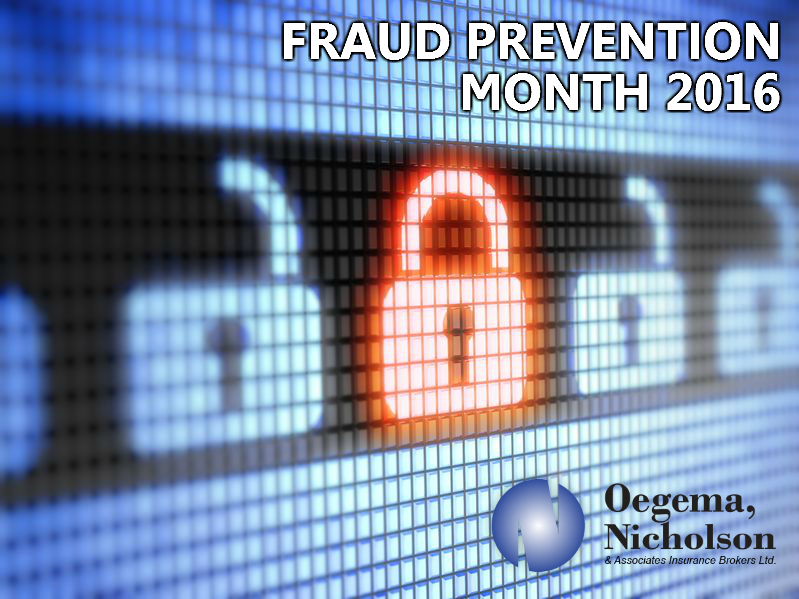
Safeguard Yourself from Scams, Fraud and Identity Theft
Posted by
on
Mar 16, 2016 in
March is International Fraud Prevention Month, so with that in mind, it’s a good opportunity to review what you can do to safeguard yourself and your family from falling victim. Here are some tips to keep in mind.

Reduce your wallet size, and don’t carry around SIN Card.
Experts recommend that you carry only the minimum amount of personal information on you at any given time. Keep your SIN card in a safe place and memorize the digits, but don’t carry it around with you. This will help limit the potential headache if your wallet is lost or stolen.Avoid giving payment information over the phone.
Some people are still a bit skeptical about giving their credit card information online, but the reality is that a secure payment portal is a more trustworthy method than giving someone your credit card information over the phone.But, only give your credit card info online to sites that are secured by SSL.
Review credit and debit statements regularly.
One of the best regular habits that you can get into is pretty simple; just keep an eye on your bank statements for unusual activity. Many people make use of online banking now, so it’s easier than ever. Even just checking in once a week or so can be an ideal way to spot something that’s off, and contact your bank about it.Use strong and unique passwords online.
Another simple thing that you can do to keep yourself protected over time is to make use of h2 passwords. Amazingly, some of the most common passwords used are easily-guessable by nearly anyone, such as “password,” “123456,” or “qwerty” (the top left keys on your keyboard.) The best way to protect yourself is to use a somewhat random collection of lowercase letters, uppercase letters, symbols and numbers for your online passwords.Know the signs of auto insurance fraud
Ever heard of the “swoop and squat?” How about the “drive down?” Those are just two of the many techniques that criminals use to stage car collisions. While they sometimes work with each other to carry out these fraudulent “accidents” (and reap the insurance rewards), they sometimes often ensnare innocent people who happen to be in the wrong place at the wrong time. For more information, please check out our previous post that gives tips on protecting yourself from staged collisions.Be skeptical of giving out personal information when you get an unsolicited phone call.
If some other party initiates a phone call with you, and ends up asking for your credit card information, avoid giving it to them.Treat your credit/debit cards properly.
When you get a new card, make sure to sign it right away. Once you’re no longer making use of a credit or debit card, destroy it immediately.Be aware of some of the most common frauds going on in Canada:
Here is a list of resources you might find useful to familiarize yourself with some of the most common ways that Canadians are scammed.- List of Fraud Types [Canadian Anti-Fraud Centre]
- BBB Releases Its First National List of Top 10 Scams
- Top 10 Canadian Scams in 2014 [CBC.ca]

